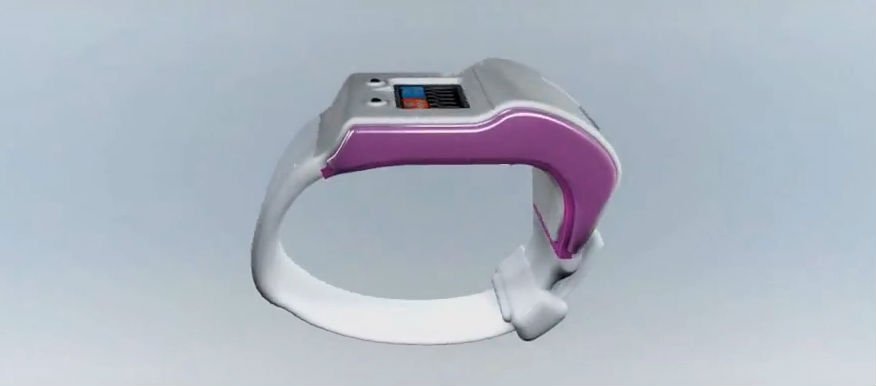For the first time, an Israeli company has been accepted into a prestigious program run by GE Healthcare, one of the biggest health-tech companies in the world. Oxitone, located in Ashkelon, was selected for GE Healthcare’s Start-Up Health Academy Entrepreneurship Program, a three-year arrangement where start-ups enter as fledgling businesses and emerge ready for prime time.
Related articles
- NowForce Uses Cellphones For Quicker Emergency Team Response
- Dario Turns Diabetics’ Smartphones Into Trendy Glucometers
“Thirteen companies were chosen for this program; only two — including ours — were from outside the US, so we consider it a great honor,” said Dr. Leon Eisen, CEO of Oxitone and inventor of the device with the same name. Actually, Eisen told The Times of Israel, Oxitone is much more than a medical device. “We are actually trying to change the paradigm of safety, via constant monitoring of blood-oxygen levels. With our device and platform, doctors will be able to keep a much better eye on chronically ill patients, and save the lives of many patients who die from an unwitnessed attack.”
It’s a paradigm that might have made life a little more comfortable for Apple founder Steve Jobs, according to his biographer.
The Oxitone device is an innovative blood-oxygen monitor, called an oximeter, worn on the wrist. The blood-oxygen level is a critical statistic for patients with forms of COPD (Chronic Obstructive Pulmonary Disease), who need to ensure that enough air is getting into their lungs. COPD usually accompanies diseases such as chronic bronchitis and emphysema, which cause the air passages to the lungs to become narrower and limit the availability of oxygen. Patients feel short of breath; they are limited in their capacity for physical activity and are at risk if they overdo it.
[youtuber youtube=’http://www.youtube.com/watch?v=-tttvK_EELs’]
Relevant to half a billion people worldwide
COPD is the third-highest cause of death in the US; in 2007, it cost the American economy $42.6 billion in health-care costs and in lost productivity. Worldwide, over 500 million people suffer from chronic conditions that put them at significant risk of pulmonary or cardiac dysfunction, with an overall average annual cost of more than $120 billion in medical costs and lost productivity.
Doctors use a device called an oximeter, aka a saturometer, to monitor the oxygen saturation of a patient’s blood; this bypasses the need to take a blood sample. Medical care personnel can monitor the level of oxygen in the blood, and inform doctors if the oxygen levels fall too far. Oximeters in the doctor’s office or the hospital generally require the patient to be hooked up to a battery of machines and monitors, which analyze the information. Numerous examinations are necessary; the patient has to repeat the routine several times a day.
There is an alternative to full-scale blood-oxygen measurement — a handheld pulse oximeter, which uses infrared light to measure the pulsation of capillaries in the finger. These devices are considered only somewhat accurate and, to boot, often entail finger pain. Current iterations of the oximeter feature “jaws” that must be clamped on to a fingertip or an earlobe — translucent parts of the body that allow the oximeter (which is based on photodiode technology) to check the level of oxygenated and deoxygenated hemoglobin in the system. Considering that this procedure takes place several times a day for lengthy minutes, patients often complain of finger pain, said Eisen, even though the clamps are touted as being “pain free.”
…
To continue reading this article, click here.
Via The Times of Israel
Photo by Oxitone
Related posts

Israeli Medical Technologies That Could Change The World

Harnessing Our Own Bodies For Side Effect-Free Weight Loss

Missing Protein Could Unlock Treatment For Aggressive Lung Cancer




Facebook comments